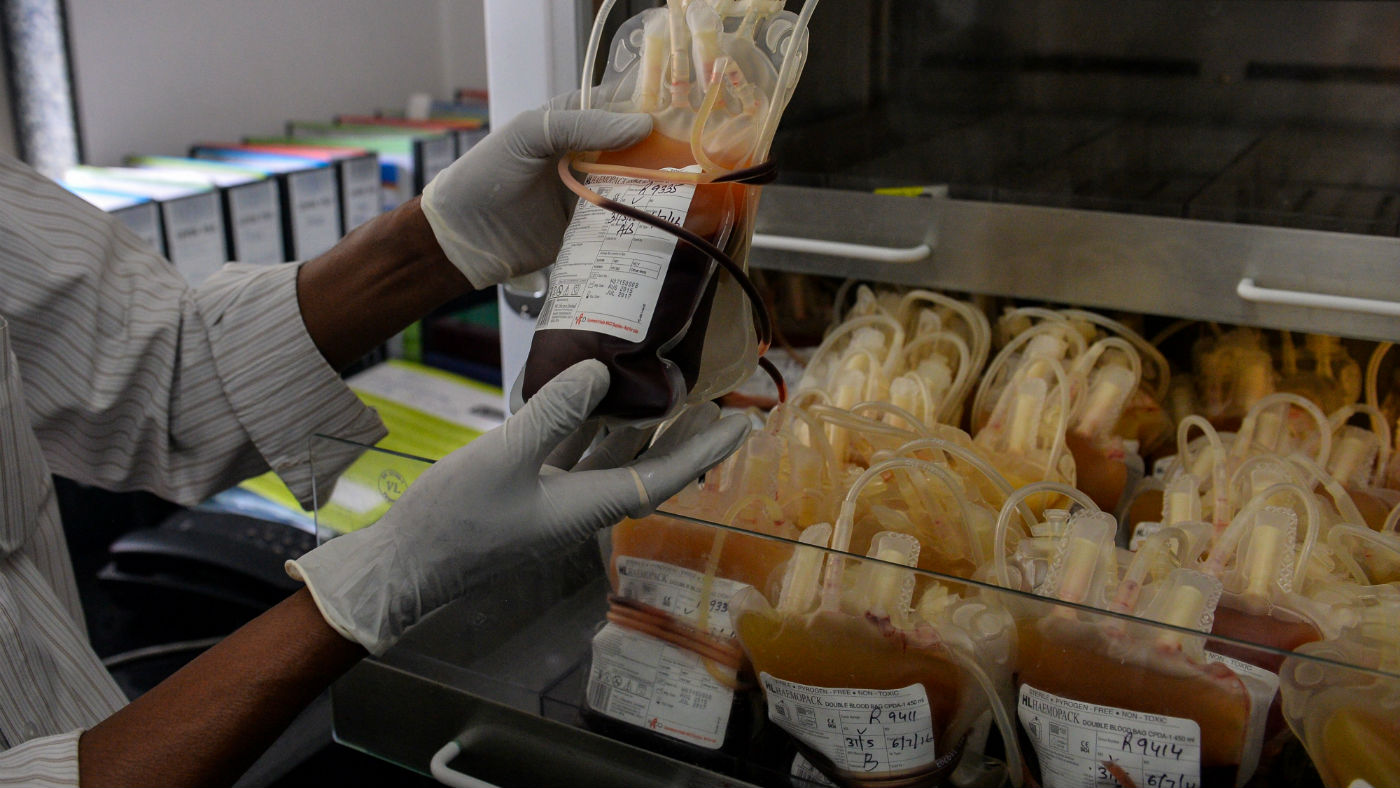Inquiry launched into contaminated blood scandal
Theresa May announces investigation into deaths of 2.400 people in the 1970s and 1980s

A free daily email with the biggest news stories of the day – and the best features from TheWeek.com
You are now subscribed
Your newsletter sign-up was successful
Theresa May has announced an inquiry into the contaminated blood scandal that claimed the lives of thousands of people in Britain in the 1970s and 1980s.
The Prime Minister's official spokesman said the investigation had been prompted by new evidence and would look to establish the causes behind this "appalling injustice".
He added: "It is a tragedy and a scandal that has caused unimaginable hardship and pain for all those affected."
The Week
Escape your echo chamber. Get the facts behind the news, plus analysis from multiple perspectives.

Sign up for The Week's Free Newsletters
From our morning news briefing to a weekly Good News Newsletter, get the best of The Week delivered directly to your inbox.
From our morning news briefing to a weekly Good News Newsletter, get the best of The Week delivered directly to your inbox.
A parliamentary report found as many as 7,500 NHS patients, many of them haemophiliacs, were infected after being given blood imported from abroad containing Hepatitis C and HIV. At least 2,400 died.
It was "the worst treatment disaster in the history of the NHS", says the BBC.
Many of those affected and their families believe they were not told of the risks involved, while others claim there was a deliberate cover-up by the government and health authorities.
Andy Evans, of campaign group Tainted Blood, said: "We have evidence that warnings were ignored and that these products continued to be used despite the warnings and that following the infections… a cover-up."
A free daily email with the biggest news stories of the day – and the best features from TheWeek.com
The inquiry follows "mounting pressure from members of parliament and others over the circumstances surrounding the deaths", says the Financial Times.
It is not yet clear whether it will take the form of a public, Hillsborough-style inquiry or a judge-led statutory investigation.
Labour leader Jeremy Corbyn said it should have the power to trigger prosecutions if evidence emerged of negligence or a cover-up.
He said: "It was obviously a serious systemic failure. I think we need the strongest possible inquiry that can if necessary lead to prosecution actions as a result, but above all get to the bottom of it."
-
 Quiz of The Week: 14 – 20 February
Quiz of The Week: 14 – 20 FebruaryQuiz Have you been paying attention to The Week’s news?
-
 The Week Unwrapped: Do the Freemasons have too much sway in the police force?
The Week Unwrapped: Do the Freemasons have too much sway in the police force?Podcast Plus, what does the growing popularity of prediction markets mean for the future? And why are UK film and TV workers struggling?
-
 Properties of the week: pretty thatched cottages
Properties of the week: pretty thatched cottagesThe Week Recommends Featuring homes in West Sussex, Dorset and Suffolk
-
 How corrupt is the UK?
How corrupt is the UK?The Explainer Decline in standards ‘risks becoming a defining feature of our political culture’ as Britain falls to lowest ever score on global index
-
 The high street: Britain’s next political battleground?
The high street: Britain’s next political battleground?In the Spotlight Mass closure of shops and influx of organised crime are fuelling voter anger, and offer an opening for Reform UK
-
 Is a Reform-Tory pact becoming more likely?
Is a Reform-Tory pact becoming more likely?Today’s Big Question Nigel Farage’s party is ahead in the polls but still falls well short of a Commons majority, while Conservatives are still losing MPs to Reform
-
 Taking the low road: why the SNP is still standing strong
Taking the low road: why the SNP is still standing strongTalking Point Party is on track for a fifth consecutive victory in May’s Holyrood election, despite controversies and plummeting support
-
 What difference will the 'historic' UK-Germany treaty make?
What difference will the 'historic' UK-Germany treaty make?Today's Big Question Europe's two biggest economies sign first treaty since WWII, underscoring 'triangle alliance' with France amid growing Russian threat and US distance
-
 Is the G7 still relevant?
Is the G7 still relevant?Talking Point Donald Trump's early departure cast a shadow over this week's meeting of the world's major democracies
-
 Angela Rayner: Labour's next leader?
Angela Rayner: Labour's next leader?Today's Big Question A leaked memo has sparked speculation that the deputy PM is positioning herself as the left-of-centre alternative to Keir Starmer
-
 Is Starmer's plan to send migrants overseas Rwanda 2.0?
Is Starmer's plan to send migrants overseas Rwanda 2.0?Today's Big Question Failed asylum seekers could be removed to Balkan nations under new government plans